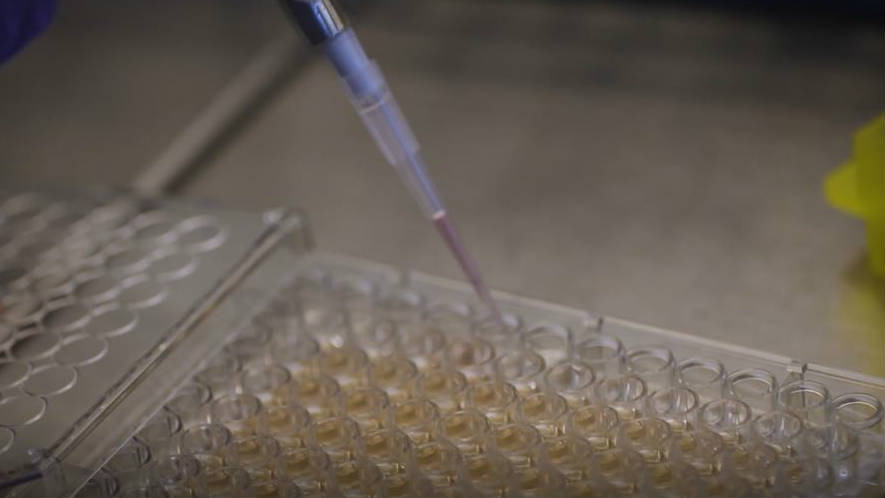01:22

It's the most abundant organism on the planet and scientists hope it will soon be used in human trials to treat people with incurable brain cancer. Professor Amin Hajitou and his colleagues at Imperial College London have come up with an unusual form of viral treatment for cancer, based on a bacteriophage or phage – a virus that normally only attacks and kills bacteria.
They've modified a type of phage, known as M13, to recognize receptors found exclusively on the surface of cancer cells instead of bacterial cells. The team has also edited the virus's genetic material to include a therapeutic gene which activates when injected, producing a protein that destroys the cancer cell.
Phages can be injected into the bloodstream, unlike other experimental viral cancer treatments which have to be injected directly into tumors.
But the property that makes them of special interest is that they can cross the blood-brain barrier which filters what goes into and out of the brain. This barrier is the main reason why cancer treatments fail to work in the brain.
Clinical trials may begin in the UK within the next 3 to 5 years but they could start even earlier in other countries.
Razor's Emma Keeling explores how the phages work and what impact it could have on cancer sufferers around the world.
Emma Keeling also talks to British oncologist, Dr Matt Williams, about how a lack of funding and limited media attention is limiting treatments for cancer. Williams outlines what he thinks can be done to bring about change in this important field.
03:21
